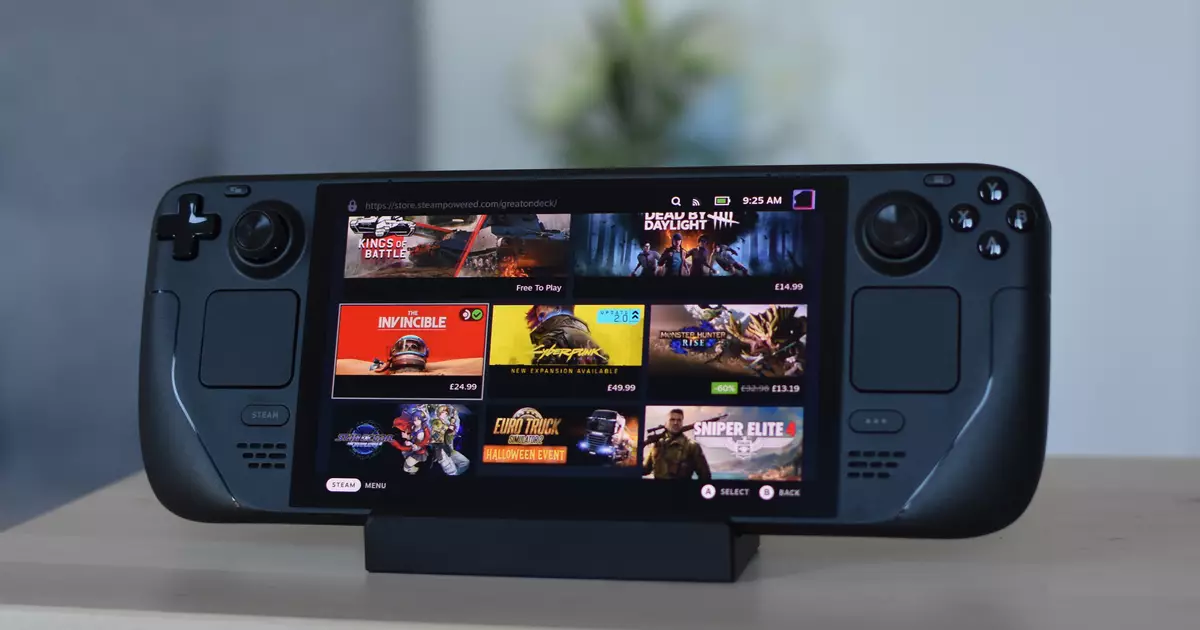The gaming hardware industry is one that constantly evolves, as major players push the boundaries of technology while trying to cater to the demands of an enthusiastic market. Recently, rumors have emerged suggesting that Valve, the renowned developer behind the Steam platform, may be exploring hardware options that pivot from the traditional x86 architecture to ARM processors. This speculation, rooted in the findings from notable sources such as NotebookCheck and SteamDB, raises intriguing questions about the future of gaming hardware and the capabilities that may come with it.
The premise of this speculation stems from the discovery of a software application named ‘ValveTestApp3043620’ associated with an array of popular PC games like *Left 4 Dead 2*, *Garry’s Mod*, and *Among Us*. This application carries tags such as ‘proton-arm64ec’ and ‘proton-arm64ec-experimental’. At first glance, it suggests that Valve is evaluating a version of Proton—its compatibility layer that allows Windows games to run on the Linux-based SteamOS—that is tailored for ARM64 architecture. As ARM is increasingly favored in devices ranging from mobile phones to the Nintendo Switch and Apple’s recent line of computers, this shift in focus could signal exciting potential developments from Valve.
One of the most appealing aspects of ARM processors is their superior energy efficiency compared to traditional x86 chips. This characteristic could make ARM a compelling candidate for the next iteration of the Steam Deck or even a standalone wireless VR headset. By harnessing the power of ARM, Valve could produce devices that not only boast an extended battery life for mobile gaming but also maintain a desirable form factor with robust performance.
Moreover, ARM’s compatibility with the Android operating system could unlock new avenues for gamers to seamlessly integrate mobile titles into their PC library. Currently, limitations severely hinder the inclusion of mobile games on the x86 architecture, making the reimagining of Proton for ARM an exciting possibility. If successful, it could widen Valve’s ecosystem, allowing gamers to access a more diverse array of content.
However, venturing into ARM territory comes with its inherent challenges and risks. Although contemporary ARM processors are no less powerful than their x86 counterparts, the bulk of PC gaming development has historically been tailored for x86 architecture. This presents two primary concerns: performance and compatibility. While Proton excels in tricking Windows games into functioning optimally on SteamOS, transitioning to an entirely different architecture could necessitate an emulation layer that may hinder performance due to the inherent complexities of emulation processes.
Maintaining high framerates while ensuring that a wide range of games runs smoothly on a new platform is no small feat. Valve must navigate these challenges to ensure that a transition to ARM doesn’t compromise the gaming experience that has made its brand synonymous with quality and innovation.
Despite these obstacles, Valve’s persistent commitment to hardware innovation is well established. With over a decade in the hardware game, it’s unlikely that the company will simply abandon its hardware division. Given their prior statements indicating that a next-gen Steam Deck is still years away, we may yet see incremental improvements or entirely new products that leverage ARM architecture sooner rather than later.
The possibility of a new generation of Steam Machines has also surfaced. If Valve opts to release products that tap into the strengths of ARM, they could shake up the gaming hardware landscape, challenging established norms and even influencing competitors to reconsider their approaches.
As Valve continues to explore the horizon of gaming hardware, its potential shift to ARM architecture could open doors to enhanced performance, new game integrations, and innovative devices. However, the path to this potential revolution is fraught with challenges that Valve must address to ensure that gamers receive the quality and performance they expect from such a titan in the gaming industry. The only certainty, at this point, is that the gaming community will be paying close attention as Valve charts its course into this exciting new technological territory.


Leave a Reply